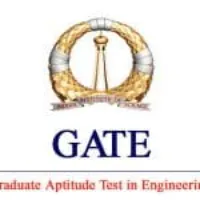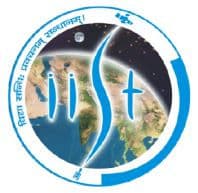Latest Applications Open 2024:
GATE 2025 Syllabus Aerospace Engineering PDF has been released. The Graduate Aptitude Test in Engineering (GATE 2025) is an All-India examination administered and conducted in eight zones across the country.
GATE 2025 Committee comprises Faculty members from IISc, Bangalore, and seven other IITs on behalf of the National Coordinating Board, Department of Education, Ministry of Human Resources Development.
In this article, GATE Syllabus 2025 has been provided for the students and aspirants with Paper codes for all the branches, and Also GATE 2025 Exam Pattern is provided. GATE 2025 is a national-level exam organized by IIT Roorkee. The Engineering Graduation Skill Test (GATE) is organized for admission to PG courses in engineering and technology, specifically ME / M.Tech.
GATE 2025 Aerospace Engineering Syllabus – PDF Released
GATE 2025 Aerospace Engineering PDF Syllabus has been released. Click to Download the GATE AE Syllabus.
Section 1: Engineering Mathematics
Important Note for Candidates: In each of the following subjects the topics have been divided into two categories – Core Topics and Special Topics. The corresponding sections of the question paper will contain 90% of their questions on Core Topics and the remaining 10% on Special Topics.
Core Topics:
Linear Algebra: Vector algebra, Matrix algebra, systems of linear equations, the rank of a matrix, eigenvalues, and eigenvectors.
Calculus: Functions of a single variable, limits, continuity and differentiability, mean value theorem, chain rule, partial derivatives, maxima and minima, gradient, divergence and curl, directional derivatives. Integration, Line, surface, and volume integrals. Theorems of Stokes, Gauss, and Green.
Differential Equations: First-order linear and nonlinear differential equations, higher-order linear ODEs with constant coefficients. Partial differential equations and separation of variables methods.
Special Topics:
Fourier Series, Laplace Transforms, Numerical methods for linear and nonlinear algebraic equations, Numerical integration and differentiation.
Section 2: Flight Mechanics
Core Topics:
Basics: Atmosphere: Properties, standard atmosphere. Classification of aircraft. Airplane (fixed-wing aircraft) configuration and various parts;
Aeroplane performance: Pressure altitude; equivalent, calibrated, indicated air speeds; Primary flight instruments: Altimeter, ASI, VSI, Turn-bank indicator. Drag polar; takeoff and landing; steady climb & descent, absolute and service ceiling; cruise, cruise climb, endurance or loiter; load factor, turning flight, V-n diagram; Winds: head, tail & cross winds;
Static stability: Angle of attack, sideslip; roll, pitch & yaw controls; longitudinal stick fixed & free stability, horizontal tail position, and size; directional stability, vertical tail position, and size; dihedral stability. Wing dihedral, sweep & position; hinge moments, stick forces;
Special Topics:
Dynamic stability: Euler angles; Equations of motion; aerodynamic forces and moments, stability & control derivatives; decoupling of longitudinal and lateral-directional dynamics; longitudinal modes; lateral-directional modes.
Section 3: Space Dynamics
Core Topics:
Central force motion, determination of trajectory, and orbital period in simple cases.
Special Topics:
Orbit transfer, in-plane, and out-of-plane.
Section 4: Aerodynamics
Core Topics:
Basic Fluid Mechanics: Conservation laws: Mass, momentum (Integral and differential form);
Potential flow theory: sources, sinks, doublets, line vortex, and their superposition; Viscosity, Reynolds number.
Airfoils and wings: Airfoil nomenclature; Aerodynamic coefficients: lift, drag and moment; Kutta-Joukoswki theorem; Thin airfoil theory, Kutta condition, starting vortex; Finite wing theory: Induced drag, Prandtl lifting line theory; Critical and drag divergence Mach number.
Compressible Flows Basic concepts of compressibility, Conservation equations; One-dimensional compressible flows, Fanno flow, Rayleigh flow; Isentropic flows, normal and oblique shocks, Prandtl-Meyer flow; Flow through nozzles and diffusers.
Special Topics:
Elementary ideas of viscous flows including boundary layers; Wind Tunnel Testing: Measurement and visualization techniques.
Section 5: Structures
Core Topics:
Strength of Materials: States of stress and strain. Stress and strain transformation. Mohr’s Circle. Principal stresses. Three-dimensional Hooke’s law. Plane stress and strain; Failure theories: Maximum stress, Tresca and von Mises; Strain energy. Castigliano’s principles. Analysis of statically determinate and indeterminate trusses and beams. Elastic flexural buckling of columns.
Flight vehicle structures: Characteristics of aircraft structures and materials. Torsion, bending and flexural shear of thin-walled sections. Loads on aircraft.
Structural Dynamics: Free and forced vibrations of undamped and damped SDOF systems. Free vibrations of undamped 2-DOF systems.
Special Topics:
The vibration of beams.
Theory of elasticity: Equilibrium and compatibility equations, Airy’s stress function.
Section 6: Propulsion
Core Topics:
Basics: Thermodynamics, boundary layers, and heat transfer, and combustion thermochemistry.
Thermodynamics of aircraft engines: Thrust, efficiency and engine performance of turbojet, turboprop, turboshaft, turbofan and ramjet engines, thrust augmentation of turbojets, and turbofan engines. Aerothermodynamics of non-rotating propulsion components such as intakes, combustors, and nozzle.
Axial compressors: Angular momentum, work, and compression, the characteristic
performance of a single axial compressor stage, the efficiency of the compressor, and degree of reaction.
Axial turbines: Axial turbine stage efficiency
Centrifugal compressor: Centrifugal compressor stage dynamics, inducer, impeller, and diffuser.
Rocket propulsion: Thrust equation and specific impulse, vehicle acceleration, drag, gravity losses, multi-staging of rockets. Classification of chemical rockets, the performance of solid and liquid propellant rockets.
Other GATE Related Syllabus PDF
| Syllabus | Code | Syllabus | Code |
| Data Science & Artificial Intelligence | (DA) | Biotechnology | (BT) |
| Agricultural Engineering | (AG) | Civil Engineering | (CE) |
| Architecture and Planning | (AR) | Chemical Engineering | (CH) |
| Computer Science and Information Technology | (CS &IT) | Chemistry | (CY) |
| Electronics and Communication Engineering | (EC) | Electrical Engineering | (EE) |
For any other queries about GATE 2025 Aerospace Engineering Syllabus, you can leave your queries below in the comment box.

As a dedicated Biology Science graduate, I’m passionate about sharing the latest updates in national and state entrance exams through my blog. I aim to keep aspiring students informed about exam trends, important dates, and changes in syllabi. With a keen interest in education, I strive to offer valuable insights for students navigating the competitive landscape of entrance examinations and admission tests. Stay updated with me.


